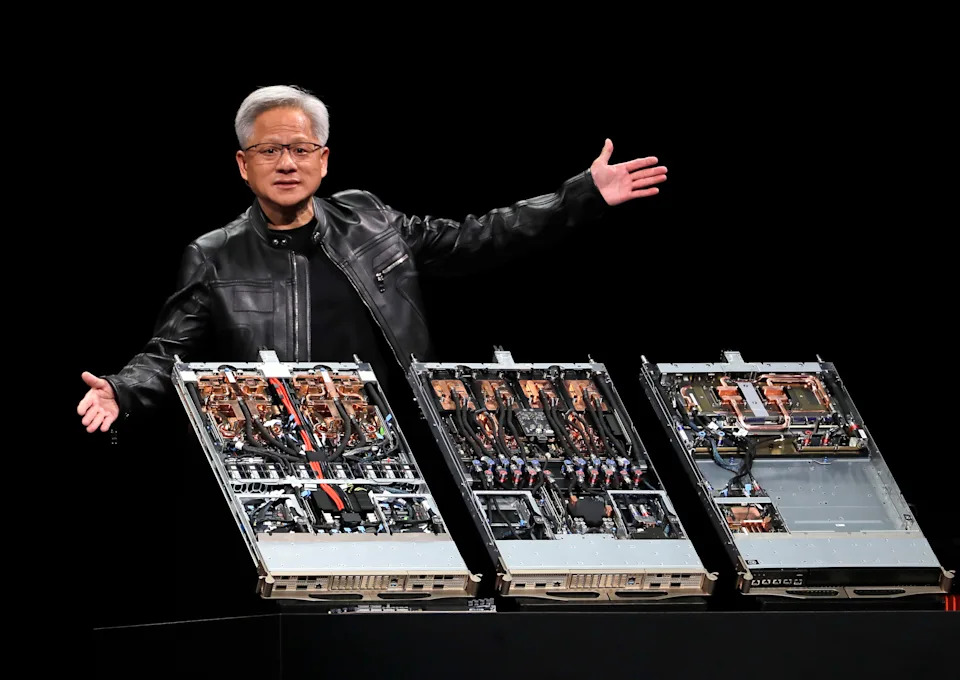
Nvidia becomes first $4 trillion publicly traded company
Key Points
- Nvidia (NVDA) became the first publicly traded company to reach a $4 trillion market cap, surpassing tech giants like Microsoft and Apple.
- The company's stock has risen 22% year-to-date and 24% over the past 12 months, driven by the generative AI boom.
- Nvidia's chips and software dominate AI training and inferencing, maintaining a competitive edge over rivals like AMD and Intel.
- Major tech firms, including Amazon, Google, and Meta, are investing heavily in Nvidia's hardware for AI data centers.
- Despite challenges like U.S. export bans to China and market fears, Nvidia's stock continues to climb with upcoming innovations like Blackwell Ultra chips.
Summary
Nvidia (NVDA) has achieved a historic milestone by becoming the first publicly traded company to reach a $4 trillion market cap, outpacing tech giants like Microsoft and Apple. The chipmaker's stock has surged 22% year-to-date and 24% over the past year, fueled by the generative AI boom that began with OpenAI's ChatGPT in 2022. Nvidia's specialized chips, graphics cards, and CUDA software platform are pivotal for training and running AI programs, giving it a significant edge over competitors like AMD and Intel. Major tech companies, including Amazon, Google, Meta, and Microsoft, are investing billions in Nvidia's hardware to build AI data centers. Despite setbacks, such as a $600 million market cap drop earlier this year and U.S. export bans to China costing billions, Nvidia's stock remains resilient. The company has debunked concerns about its chips' relevance in AI inferencing and continues to benefit from global demand, including sovereign AI initiatives in countries like Saudi Arabia and across Europe. With the upcoming release of its Blackwell Ultra chips and no major competitors in sight, Nvidia is poised for further growth in the AI-driven tech landscape.
yahoo
July 9, 2025
Stocks


